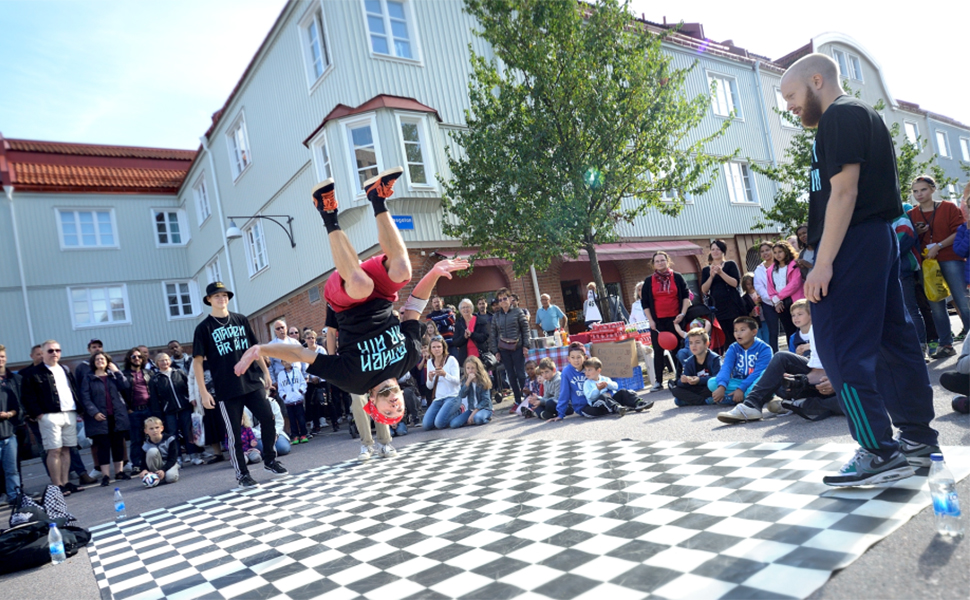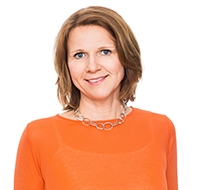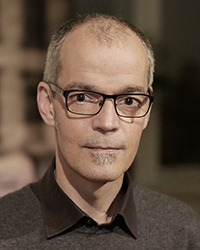
Urban Research
Slumification. Underperforming local areas. Short-sightedness and unsustainability. Is BIDs the tool we have been waiting for?
BIDs, Business Improvement Districts, is a method for long-term collaborative area based development spreading around the world. The first BID started in Canada in the 1970s. Today, legislations that sustains the formation and functioning of BIDs are in place in countries like Germany, the Netherlands, the United Kingdom, Ireland, South Africa and the United States. The implementation of BIDs-legislations are discussed in several countries, e.g. in Denmark, Norway, Belgium and Albania. But why?
A local initiative
A BID is formed and financed by the local property owners in collaboration with the local municipality, and work closely together with the local community, business actors, civil society and others. The forming of a BID is preceded by a problem analysis, the formulation of an action plan, a financial plan and active mobilization of local actors. A BID-legislation provides a procedure whereby local property owners vote for or against the BID. If a sufficient majority vote yes, and if the BID is confirmed by the local council, participation in the BID is mandatory for all property owners within the borders of the BID.
BIDs - Contested and debated
BIDs are contested in many countries. Still more and more BIDs are established and they are now counted in thousands. The reason is that results are evident and often visible to the eye. There are also failure examples, and the aims and means of BIDs are debated, but in many cases BIDs have provided better environments for residents, visitors and local businesses.
BID in Sweden
In Sweden there is no BIDs-legislation and thus there are no proper BIDs in this country. There are, however, several BID-inspired long term development partnerships in place. The first speaker of the seminar, MSc Helena Holmberg, is introducing the BID concept and shares with us the experiences and tangible results of the development process taking place in Gamlestaden, Gothenburg, driven by an association of 45 of the local property owners which has been in operation since 2001. A crime ridden neighborhood has been turned into a success story. Similar development processes take place at Centrala Hisingen in Gothenburg, Järva in Stockholm, Sofielund in Malmö, in the town of Landskrona, as well as in city centres and rural areas in various places across the country.
Hamburg a city in the forefront
In Hamburg, laws supporting the formation Urban Improvement Districts have been in place since 2004. Mistra Urban Futures is more than happy to welcome Dipl.-Ing. Stefan Kreutz from Hafen City Universität from Hamburg, Germany, to share his experiences of UIDs/BIDs with the Mistra Urban Futures network. He has researched several urban renewal projects in Hamburg and in Berlin, where abandoned industrial urban areas have been transitioned into various dynamic and more sustainable uses, and points out both benefits and challenges with private initiatives in urban development.
What can Sweden possibly learn from international BID-experiences? What benefits could be gained? What mistakes should not get repeated? What are the scientific lessons, as the lessons for decision-makers and policymakers? Should the BID methods be further applied in Sweden? In addition, Mistra Urban Futures invites to establish a network of researchers and practitioners interested into this topic.
Date: Wednesday February 1, 2017
Time: 13:00-16:00
Venue: Malmstensalen, School of Business, Economics and Law, University of Gothenburg, Vasagatan1
Register no later than 13:00 on January 30th
Program
13:00-13:10 David Simon, Director Mistra Urban Futures, Introduction and welcome
13:10-13:15 Ylva Norén Bretzer, University of Gothenburg and consortium co-ordinator for University of Gothenburg, Mistra Urban Futures, introducing the speakers
13:15-14:05 Helena Holmberg, Consultant, Gothenburg: Gamlestaden. From decay to rebirth. A case for BIDs in Sweden? (general introduction of the BID theme)
14:05-14:20 Coffee-break
14:20-14:40 Sean Bullick, Chief executive NE1, talks on the EU BID Award-winning example Newcastle, (Case #1) [link: http://www.newcastlene1ltd.com/]
14:40-15:25 Stefan Kreutz, Dipl. Ing. HafenCity Universität, Hamburg: The Urban Improvement District Experience in Hamburg. What can Sweden possibly learn from Germany? (Case #2)
15:25-16:00 Open discussion led by Ylva Norén Bretzer, University of Gothenburg and consortium co-ordinator for University of Gothenburg, Mistra Urban Futures,
After the seminar, there will be opportunities to continue at Cheers, Viktoriagatan 10, for informal talks and networking.
MSc., Consultant Helena Holmberg
 Helena Holmberg is a political scientist, consultant and managing the operations of the partnership of the property owners in the city district of Gamlestaden, Gothenburg. She is the author of books and reports on local development, BIDs and BID-inspired partnerships, safety and security, discrimination in the housing sector among other topics.
Helena Holmberg is a political scientist, consultant and managing the operations of the partnership of the property owners in the city district of Gamlestaden, Gothenburg. She is the author of books and reports on local development, BIDs and BID-inspired partnerships, safety and security, discrimination in the housing sector among other topics.
She is also a councillor at the Regional Council of Västra Götaland and chairs the board of the Angered Hospital.
Dipl.-ing. Stefan Kreutz, Dep. of Urban Planning, HafenCity Universität, Hamburg
 Stefan Kreutz, an urban planner by profession, has worked in both public administration and urban regeneration and development. Since 2007 he is Researcher at HafenCity Universität Hamburg. His research focuses on private initiatives in urban development, including Urban Improvement Districts like Business and Neighbourhood Improvement Districs, collaboration and stakeholder involvement in planning and management of open spaces. He is running research projects submitted by the Federal government and by the City of Hamburg.
Stefan Kreutz, an urban planner by profession, has worked in both public administration and urban regeneration and development. Since 2007 he is Researcher at HafenCity Universität Hamburg. His research focuses on private initiatives in urban development, including Urban Improvement Districts like Business and Neighbourhood Improvement Districs, collaboration and stakeholder involvement in planning and management of open spaces. He is running research projects submitted by the Federal government and by the City of Hamburg.
Questions?
Contact Ylva Norén Bretzer, University of Gothenburg and consortium co-ordinator for University of Gothenburg, Mistra Urban Futures, +46 (0)704 362449, Ylva.Noren-Bretzer@spa.gu.se







